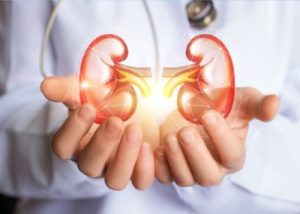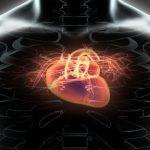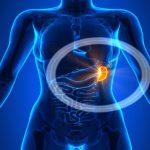 This weekly health news roundup has our top editorials regarding renovascular hypertension, hot ears, cardiomyopathy types, essential oils for constipation, and splenic infarction. In case you missed any of the latest stories in health, you can get a recap of the past week with our topic articles below.
This weekly health news roundup has our top editorials regarding renovascular hypertension, hot ears, cardiomyopathy types, essential oils for constipation, and splenic infarction. In case you missed any of the latest stories in health, you can get a recap of the past week with our topic articles below.
Renovascular hypertension (renal hypertension): Causes, symptoms, diagnosis, and treatment
Renovascular hypertension, or renal hypertension, is commonly diagnosed in older individuals and can be associated with cardiovascular health. Here we answer the question “what is renovascular hypertension?”
Advertisement
The quick and simple answer is that it is high blood pressure due to kidney problems. Renal artery stenosis, which is the narrowing of one of the renal arteries, can interrupt blood flow to the kidney, leading to renal hypertension. In the medical community, it is referred to as a secondary type of high blood pressure. Data shows that renal hypertension is most often diagnosed among the elderly population and has a significant impact on patient prognosis. For instance, people over the age of 67 who are diagnosed with renal hypertension are six times more likely to experience a cardiovascular event and death. Continue reading…
 Hot ears: What makes your ears hot and how can this problem be treated?
Hot ears: What makes your ears hot and how can this problem be treated?
Hot ears are defined by a burning sensation you may feel in either one or both of your ears. This is usually a symptom of other underlying potential health issues or conditions and is characterized by minimal or major pain; redness; flakiness; and ears that are warm to the touch.
Continue reading to learn about the possible causes and symptoms that are associated with hot ears and how these ailments can be identified, prevented, and treated.
What are the causes of hot ears?
As mentioned, hot ears are usually a symptom of one or more possible health conditions you could be unwittingly enduring. Some of them are easier to identify and treat than others, so it’s important to try to diagnose the problem as early as possible to prevent it from getting worse over time.
If you’ve asked yourself on more than one occasion, “Why do my ears get hot?” or “Why is my ear hot?” then here is a list of potential hot ear causes that you should know about. Continue reading…
 Cardiomyopathy types: Dilated, hypertrophic, restrictive, ischemic, and alcoholic
Cardiomyopathy types: Dilated, hypertrophic, restrictive, ischemic, and alcoholic
Cardiomyopathy is a condition where the heart muscle does not function as it should. The main types of this condition include dilated, hypertrophic, and restrictive cardiomyopathy. This condition makes it more difficult for your heart to pump and deliver blood to the rest of your body through the circulatory system. It can lead to heart failure, but it can be treated. The type of treatment a patient receives all depends on the type of condition they have and its severity.
Treatment may include medications, surgery implanted devices, or in life-threatening cases, a heart transplant. Continue reading…
 Essential oils for constipation: Benefits, usage, and warnings
Essential oils for constipation: Benefits, usage, and warnings
If we’re going to talk about all of the plentiful health benefits provided by essential oils for constipation, a good place to start is by first defining what constipation is and the symptoms that come with it. So, what is constipation? According to the National Institute of Diabetes and Digestive and Kidney
Diseases, constipation constitutes the following:
Producing less than three bowel movements per week
Producing hard, dry stools that are extremely painful and difficult to pass, causing a great deal of pressure
Bowel movements occur noticeably less frequently than they used to
Mild or extreme stomach pain and bloating in conjunction with the abovementioned symptoms
Advertisement
Your gut consists of microscopic bacteria that are responsible for absorbing and processing vitamins and nutrients that are derived from the foods you consume. When these normal functions become inhibited, disturbed, or out of balance for one reason or another, the result is constipation. Continue reading…
 Splenic infarction: Causes, complications, symptoms, prognosis, and treatment words
Splenic infarction: Causes, complications, symptoms, prognosis, and treatment words
In order to completely understand what a spleen infarction is, it’s important to learn about the role that the spleen plays in the body. The spleen is a lymphatic organ that’s located in the upper-left abdominal quadrant and its main function is to filter out and store the red blood cells as well as produce white blood cells so that the immune system can function normally.
It’s also responsible for eliminating micro-organisms like bacteria that could cause infections throughout the body and put your health at risk.
Spleen infarction occurs as a result of blockage or lack of proper blood circulation in the spleen. Tissues in the spleen die off due to insufficient oxygen supply, which is typically provided through the bloodstream. This can negatively impact either certain parts of the spleen or the entire organ depending on the exact location and extent of the blockage. Continue reading…
